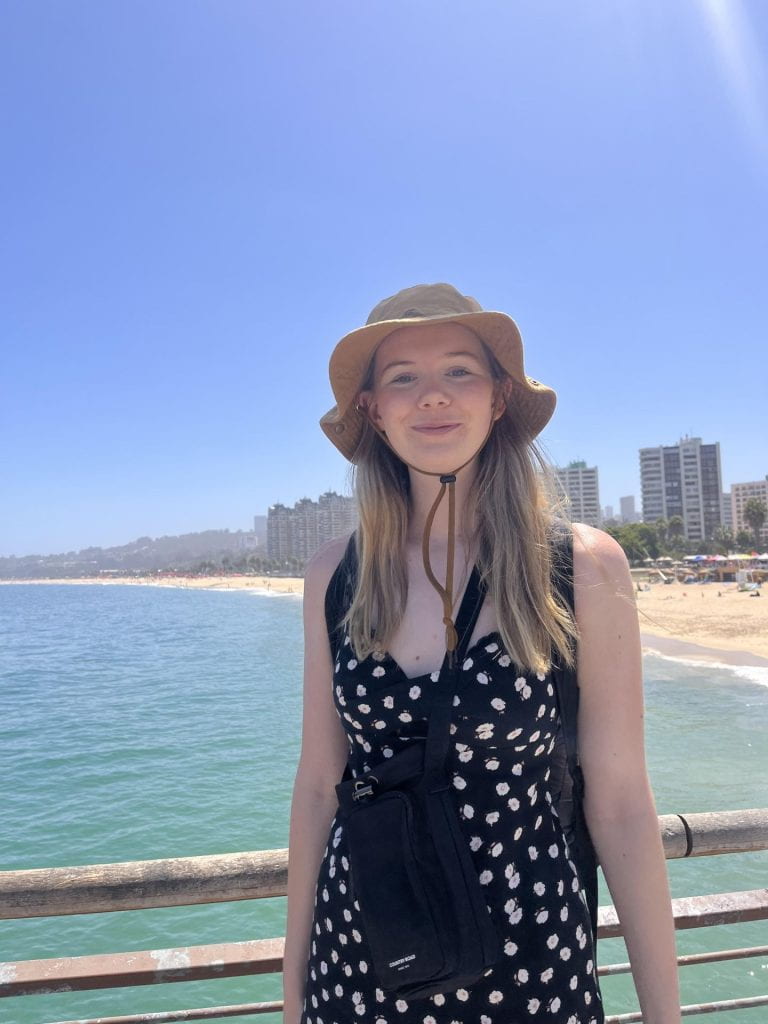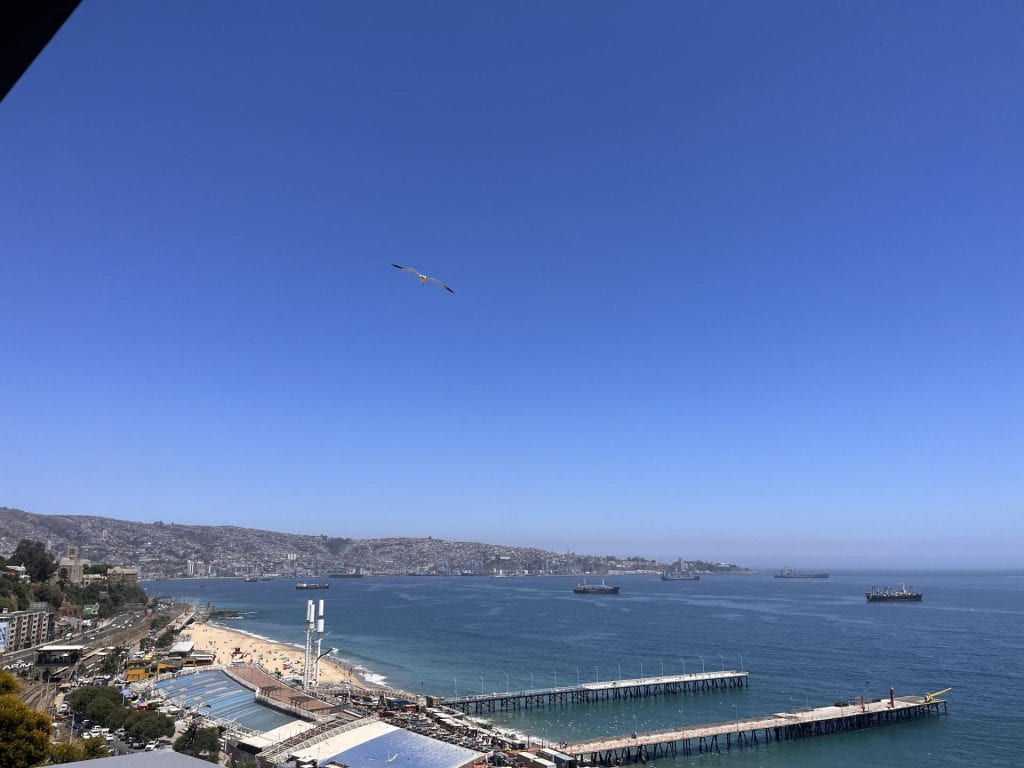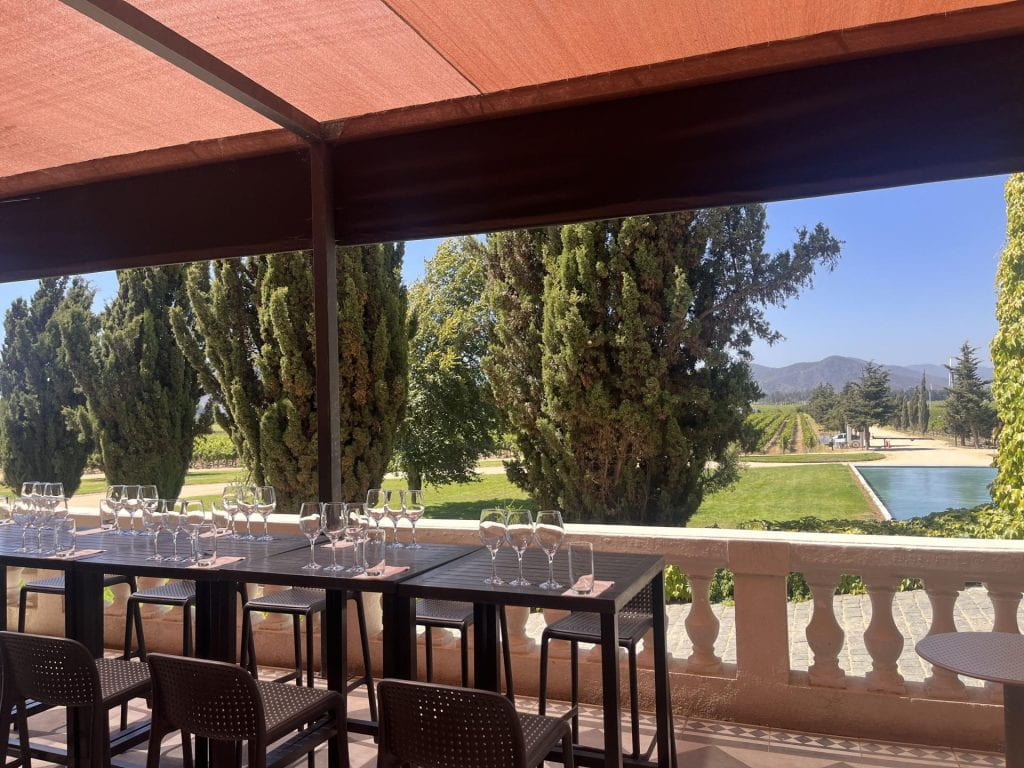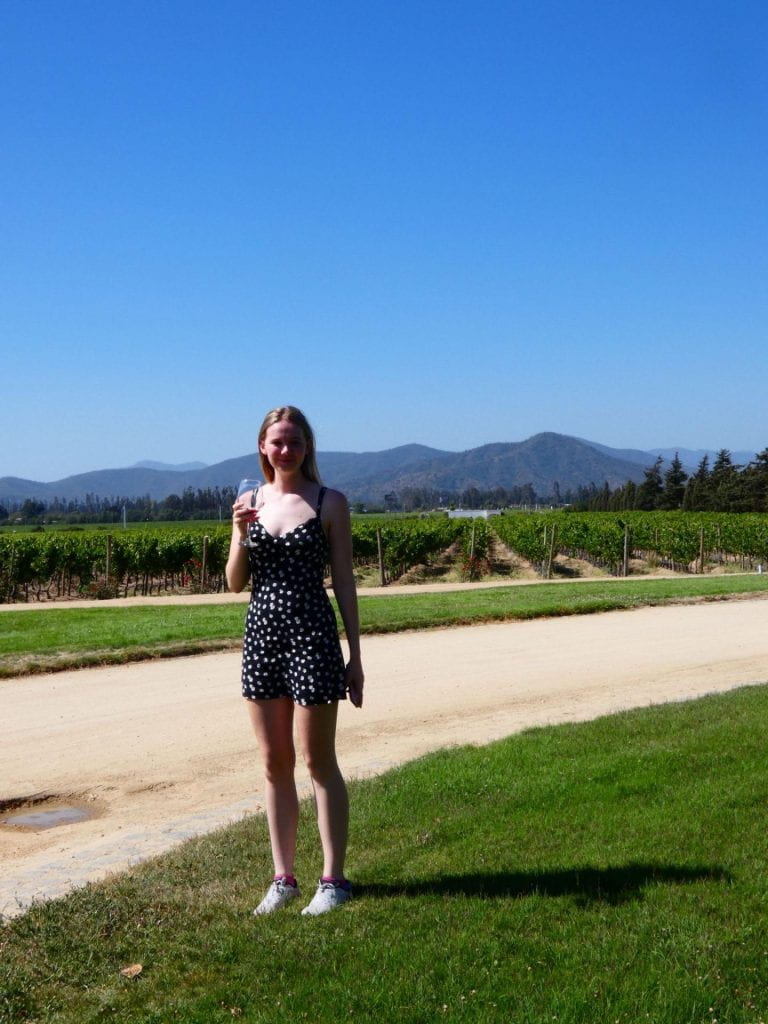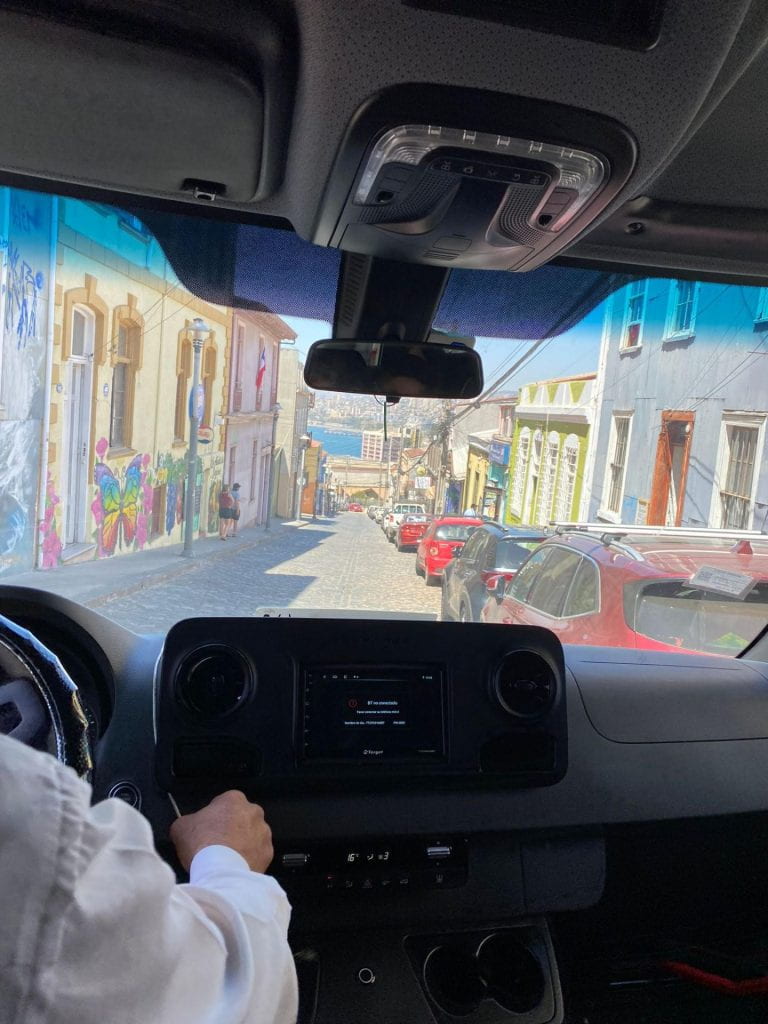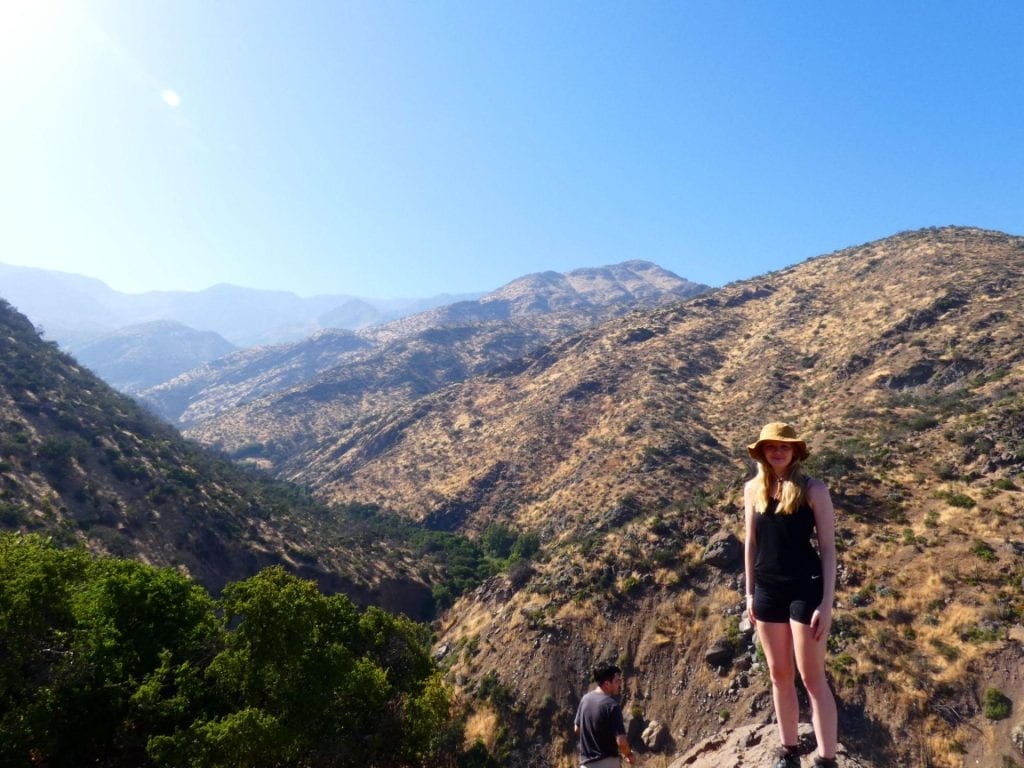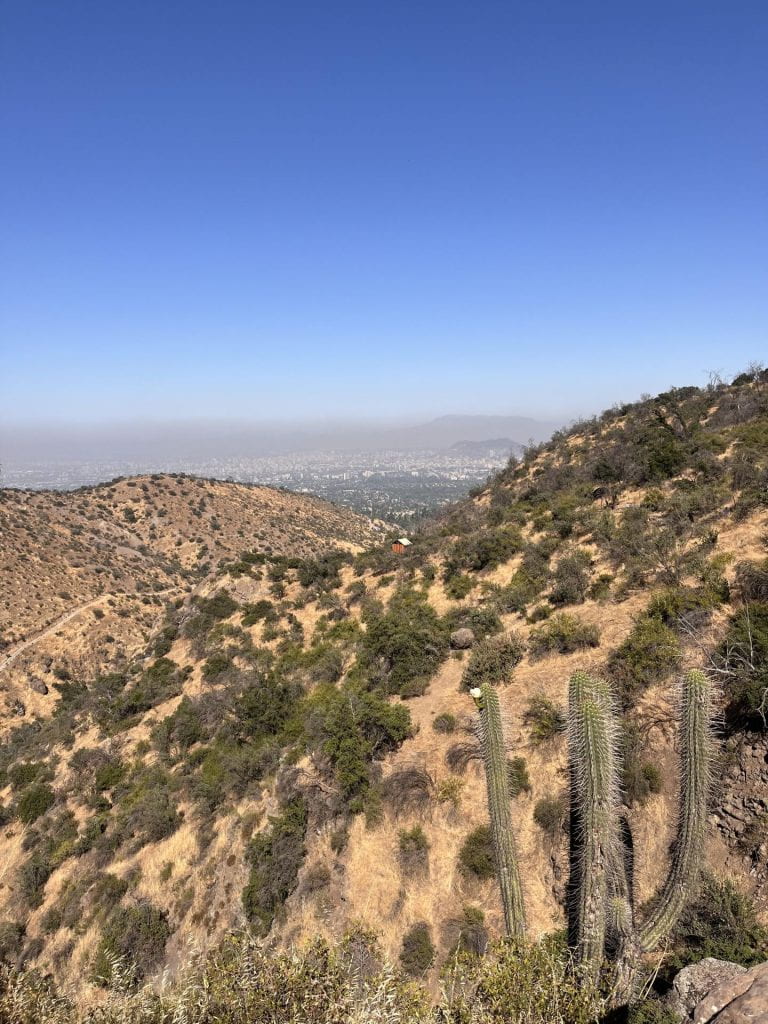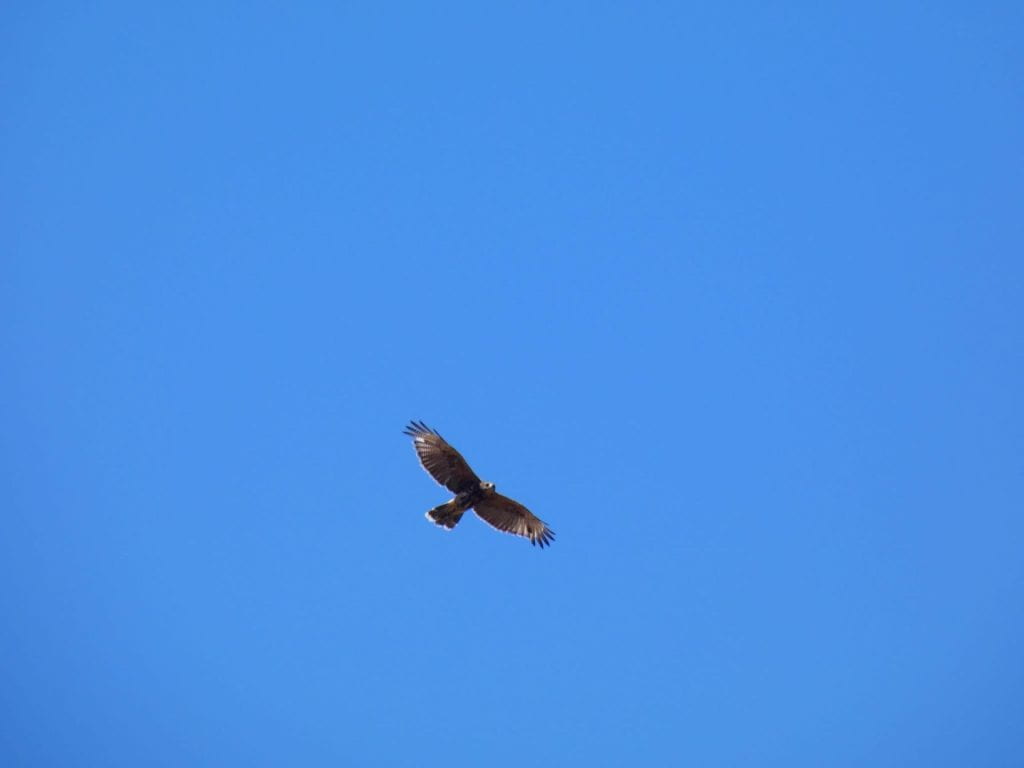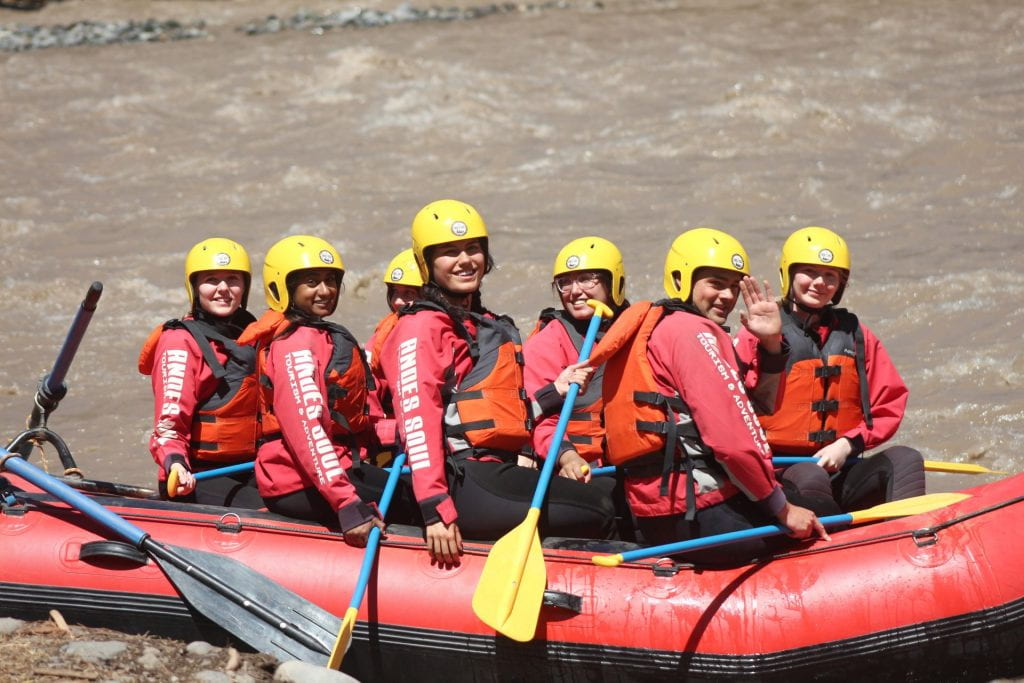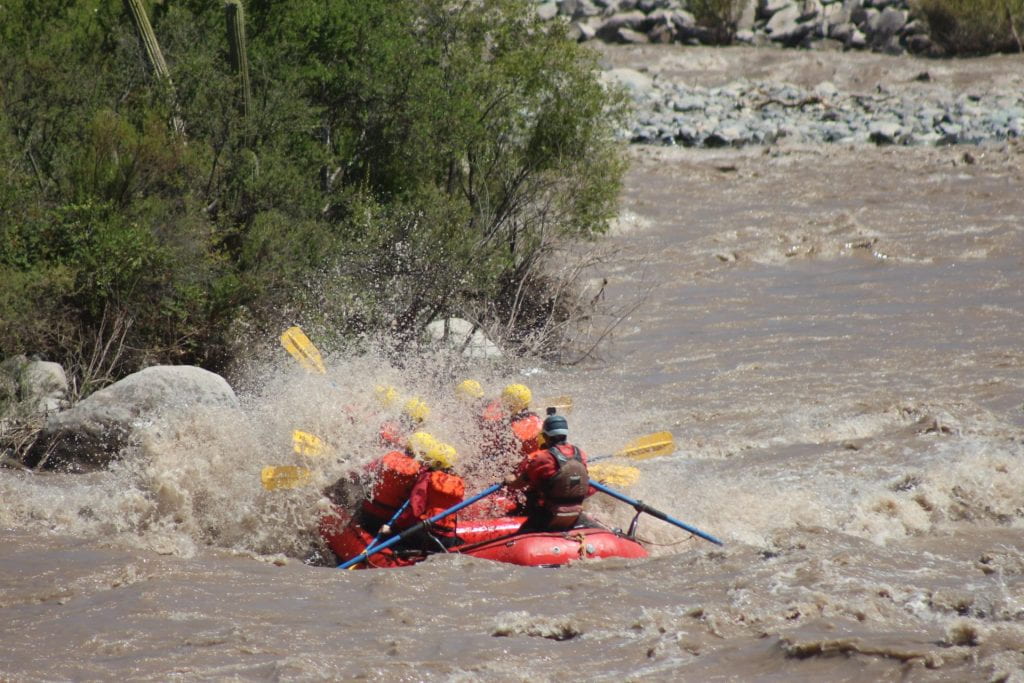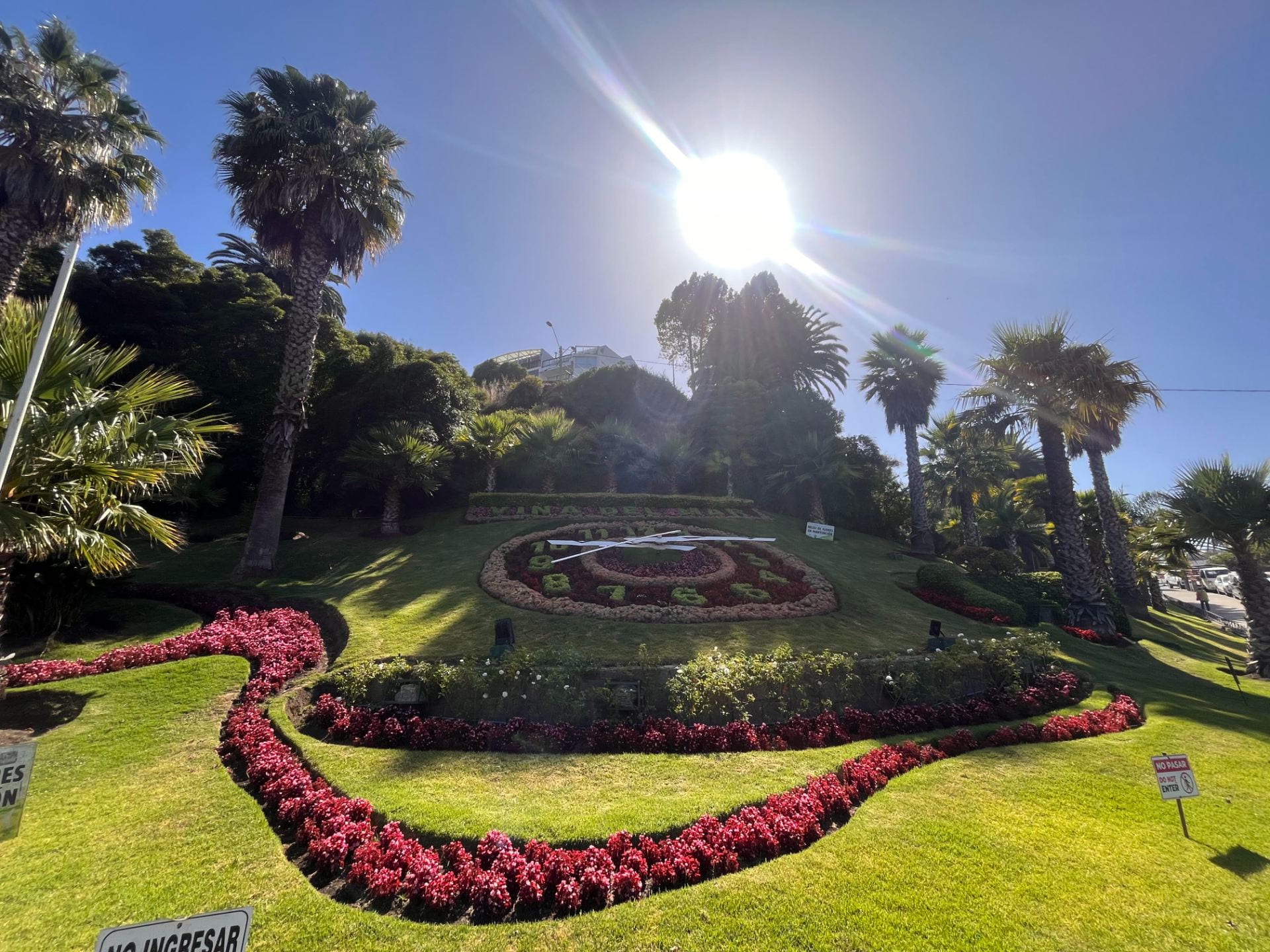
Mari mari from Santiago! This week has felt both grounding and challenging as we visited Viña del Mar and Valparaíso, went hiking in Parque Natural Aguas de Ramón, went rafting in the Andes, learned about ethnicity and health care in Chile, visited the Memory and Human Rights Museum, and attended a field observation to learn about Mapuche intercultural practices.
Highlights
Friday: Today felt like a scene out of a movie. We drove from Santiago northwest to the coastal city of Viña del Mar. During the hour-and-a-half drive, I was fascinated by the changing flora, as the colours of the landscape changed from rocky, arid terrain to lush green vegetation. We visited the beach at Viña del Mar, and it was a surreal feeling to dip my toes into the water. I realised in this moment how important the ocean is to me and how connected I felt to home. It was a phenomenal feeling to run along the sand and feel the sea breeze, a feeling I had missed. We then ate a delicious lunch with a panoramic view overlooking Viña del Mar and Valparaíso. The unique blend of French, English, and German architecture in Valparaíso gives an eclectic style. To end the day, we visited Casa Valle Viñamar, in the Casablanca Valley, which felt like a scene out of The White Lotus. It was an incredible opportunity to try Chilean wine and learn about the unique climate that produces the grapes.
Saturday: Today, I felt grounded and at peace as we went on a 4-hour hike at Parque Natural Aguas de Ramón. It was nice to step out of the concrete jungle and head to the outskirts of the city. We hiked the Los Peumos trail, walking along a valley and passing through a sclerophyllous forest with a waterfall and pools. Even though we started the hike early, the sun beamed down on us. I felt reconnected with nature and enjoyed seeing native Chilean flora and fauna. We found a small waterfall and decided to go for a dip. The water was freezing cold but much appreciated in the 32-degree heat! The experience felt like it healed a part of me that was missing home, and it was pretty cool to see lots of cacti!
Sunday: We decided to go rafting in the Andes today, and it did not disappoint. We took the metro to a bus stop in Las Mercedes and took the bus to Andes Soul rafting in San José de Maipo. I was so excited but equally nervous. We arrived and got geared up to go. I distinctly recall getting in the raft, realizing there’s no turning back now. It was an absolute blast! It was truly a team bonding experience as we paddled together, screamed together, and faced the rapids head-on together. Rafting down the Maipo River against the backdrop of the Andes was an unforgettable experience.
Monday: Having recovered from the thrills of hiking and rafting, we went to class today for a seminar on ethnicity and health care in Chile. There are 11 different groups of indigenous peoples in Chile, and we discussed interculturality, intercultural politics, and intercultural education in the Chilean context. We discussed the dispossession of land and the cultural loss indigenous communities are facing. We also discussed linguistic revitalisation and the contributions of indigenous organisations to fight back.
Tuesday: On Tuesday, we continued our conversation about indigenous peoples in Chile, shifting the focus to Mapuche and Aymara worldviews. The history of colonization and territorial dispossession were pertinent topics of current political importance, given the recent rejection of the proposed constitution in 2022. Delving into Aymara worldviews, I enjoyed learning about Suma Qamaña (good living), which is like an ethical principle that encompasses living harmoniously with nature, your community, your ancestors, your body, spirituality, and animals. Following this, we learned about the Mapuche worldview, which conceives the world as a place of living forces where everything is alive.
In the afternoon, we visited the Memory and Human Rights Museum, which commemorated victims of human rights abuses and contained documents, archives, and survivors’ testimonies to portray memories of human rights violations that occurred in the dictatorship (1973-1990). This visit was a time of ethical reflection and remembrance of the human rights abuses under Chilean dictator Pinochet. It was an emotional visit as we learned and reflected on the horrors and suffering. The museum was a powerful space to understand the everlasting impact of the dictatorship and the importance of truth and justice in democracy.
Wednesday: On Wednesday, we continued our discussion on ethnicity and health care in Chile. We began by discussing indigenous people’s rights to self-determination, political rights, health services, and land rights in the Chilean context. We learned about traditional medicine practices in Mapuche culture and the progress towards creating an intercultural health model that prioritizes the participation of communities. However, gaining the trust of indigenous communities is a difficult task in Chile, given the persecution indigenous peoples have suffered for centuries and still suffer today.
In the evening, we went to a community dance class! We attended a bachata class and then a salsa class, which was a unique experience. We made friends with the locals who were excited to learn about New Zealand and share their stories. We went around in a circle, swapping dance partners, so we had an opportunity to dance with everyone. The happiness was contagious, and I can’t wait to go again next week and learn some new moves.
Thursday: Today, we participated in a field observation to learn about Mapuche’s intercultural practices. We visited a Ruka, which is a traditional Mapuche house and learned about Mapuche culture and worldviews. I particularly enjoyed learning about traditional instruments such as the cul-trum, pifillka, tru truka, and cascawilla.
Following the field observation, we visited the Department of Health and Indigenous Peoples and Interculturalism under the Ministry of Health in Chile. We attended a presentation on the development of health policies for indigenous peoples in Chile and were joined by representatives from Education New Zealand and the New Zealand Embassy. This was a special opportunity to learn about interculturality from a state perspective and speak candidly about our New Zealand context. I felt deeply humbled and grateful to be involved in this knowledge exchange.
Reflections
Wow, what a week! I can’t believe we have just completed our third week in Santiago. Every day, I wake up with an overwhelming feeling of gratitude. Thank you for following along, and I look forward to documenting our last week.
